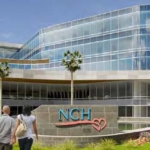A Housing Breakthrough

By Dave Trecker
There’s some good news in what was recently named one of the “Worst U.S. Cities to Live In,” a community with a 43% poverty rate.
And good news is sorely needed. It’s estimated there are over a thousand families living in substandard trailers and shacks in Immokalee, many charged rental fees that soak up as much as 70% of their household income.
To combat this, a new organization was formed. Called the Immokalee Fair Housing Alliance, the 501(c)(3) nonprofit group is not only proposing affordable rentals, it is building them. The first will be ready for occupancy in early 2024.
It’s a remarkable success story.
Reeling from the devastation of Hurricane Irma in 2017, the community turned to relief organizations that, in turn, enlisted Collier churches and other charities to aid in the recovery.
 Hurricane recovery was the immediate goal, but Arol Buntzman, a member of the group, saw a longer-term need – safe, affordable housing for the displaced people and others in poverty wracked Immokalee. In 2018, he founded the IFHA.
Hurricane recovery was the immediate goal, but Arol Buntzman, a member of the group, saw a longer-term need – safe, affordable housing for the displaced people and others in poverty wracked Immokalee. In 2018, he founded the IFHA.
Buntzman’s personal story is itself pretty impressive. The son of Russian immigrants who moved to Mexico, then California, Buntzman toiled in the fields and picked crops much as workers now do in the tomato fields of Immokalee. He worked relentlessly, obtained an MBA from Arizona State and an EdD from Fordham University, and forged a career in industrial development and real estate, always looking to help others along the way. He is a man used to getting things done.
To move things along, Buntzman added numerous corporate players to the IFHA board – retired executives from MerrillLynch, RR Donnelley, Bancorp and NPS Inc. – to go along with local clergy and community organizers. The group decided to shun government handouts and, instead, raise money from private donors. (The NoVo Foundation recently bestowed a $1 million grant.)
The first step in the venture was to obtain land, and Barron Collier Corporation pitched in by providing a 10-acre parcel on Lake Trafford Road at a price well under market value.
The IFHA blueprint was then crafted. Itcel’s for eight hurricane-resistant buildings– 128 units at build-out – to house families charged rent capped at 30% of household income. The development will include recreational facilities, a community center and a library, along with provisions for tutoring and childcare.
The end result will be affordable rentals, not only for farmworkers and their families, but for other essential workers as well. Estimated cost of the project is $30 million, or about $5 million per building.
Progress to date has been impressive. Funds were raised for construction of the first building, which is nearing completion, and Buntzman says ground will be broken for the second building shortly. “Because we have the land and the permits and infrastructure in place, we can move quickly once we have funding,” he points out.
A third building is also in the works. IFHA is partnering with the Shelter for Abused Women and Children to provide permanent low-rent housing for these battered and forgotten people.
Guadalupe Center president Dawn Montecalvo agrees with those who call the project a breakthrough. She says, “IFHA is addressing the greatest need in our community: safe, affordable living space.”
Dr. Buntzman adds, “Immokalee means ‘My Home’ and, through this project, we will build a sense of home, family and hope.”
No one expects things to change overnight, but this is an important step forward. “Our job is far from done,” says Buntzman. “We must continue our efforts to help people escape exploitation and poverty.”
Because the IFHA buildings are constructed in stages when money becomes available, fund-raising is vital and donors are urged to help.
Dr. Trecker is a chemist and retired Pfizer executive living in Naples.




Leave a Reply
Want to join the discussion?Feel free to contribute!